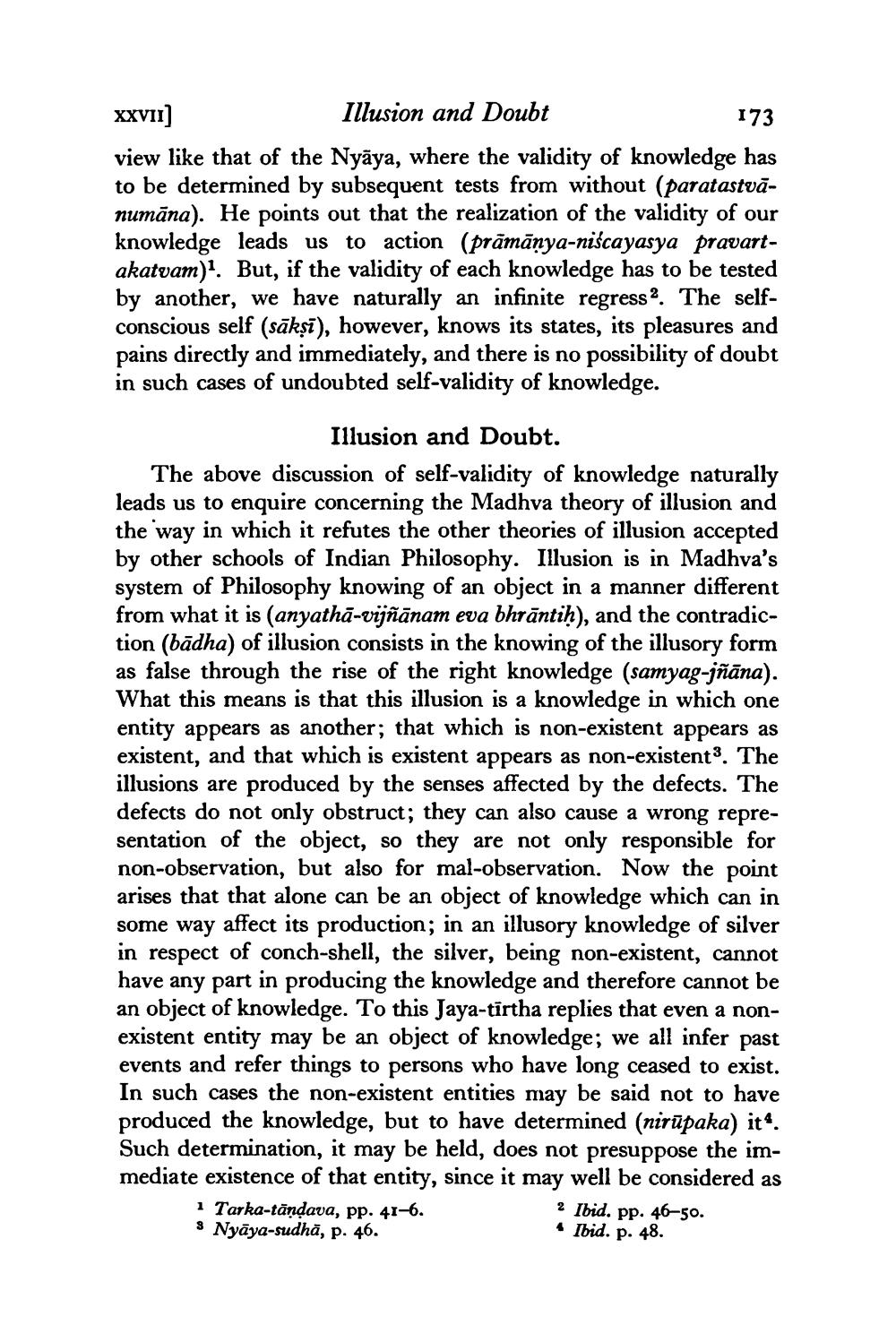________________
XXVII] Illusion and Doubt
173 view like that of the Nyāya, where the validity of knowledge has to be determined by subsequent tests from without (paratastvānumāna). He points out that the realization of the validity of our knowledge leads us to action (prāmānya-niscayasya pravartakatvam)'. But, if the validity of each knowledge has to be tested by another, we have naturally an infinite regress 2. The selfconscious self (sākşi), however, knows its states, its pleasures and pains directly and immediately, and there is no possibility of doubt in such cases of undoubted self-validity of knowledge.
Illusion and Doubt. The above discussion of self-validity of knowledge naturally leads us to enquire concerning the Madhva theory of illusion and the way in which it refutes the other theories of illusion accepted by other schools of Indian Philosophy. Illusion is in Madhva's system of Philosophy knowing of an object in a manner different from what it is (anyathā-vijñānam eva bhrāntiḥ), and the contradiction (bādha) of illusion consists in the knowing of the illusory form as false through the rise of the right knowledge (samyag-jñāna). What this means is that this illusion is a knowledge in which one entity appears as another; that which is non-existent appears as existent, and that which is existent appears as non-existents. The illusions are produced by the senses affected by the defects. The defects do not only obstruct; they can also cause a wrong representation of the object, so they are not only responsible for non-observation, but also for mal-observation. Now the point arises that that alone can be an object of knowledge which can in some way affect its production; in an illusory knowledge of silver in respect of conch-shell, the silver, being non-existent, cannot have any part in producing the knowledge and therefore cannot be an object of knowledge. To this Jaya-tirtha replies that even a nonexistent entity may be an object of knowledge; we all infer past events and refer things to persons who have long ceased to exist. In such cases the non-existent entities may be said not to have produced the knowledge, but to have determined (nirūpaka) it. Such determination, it may be held, does not presuppose the immediate existence of that entity, since it may well be considered as 1 Tarka-tāndava, pp. 41-6.
2 Ibid. pp. 46-50. 8 Nyāya-sudhā, p. 46.
• Ibid. p. 48.




